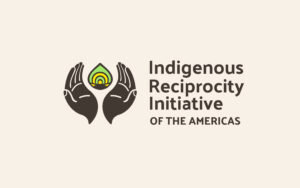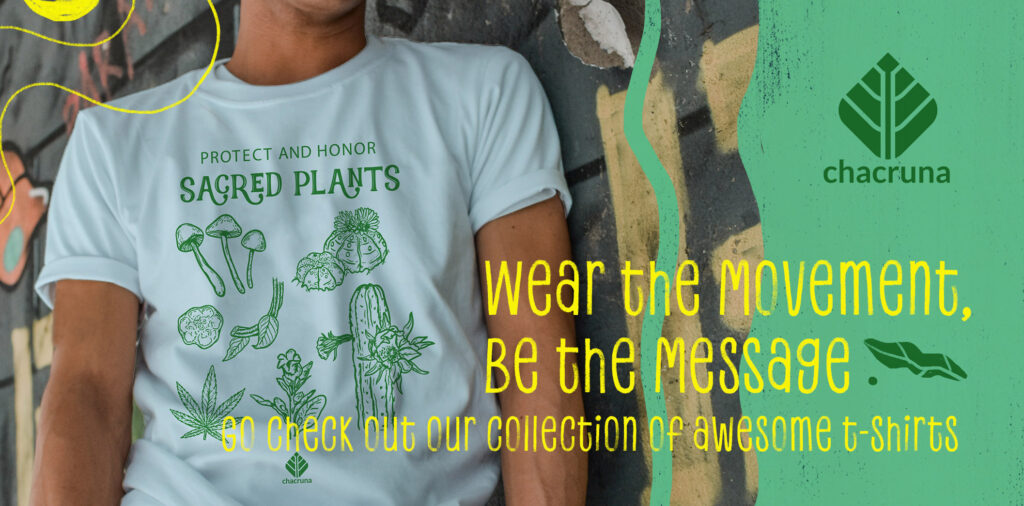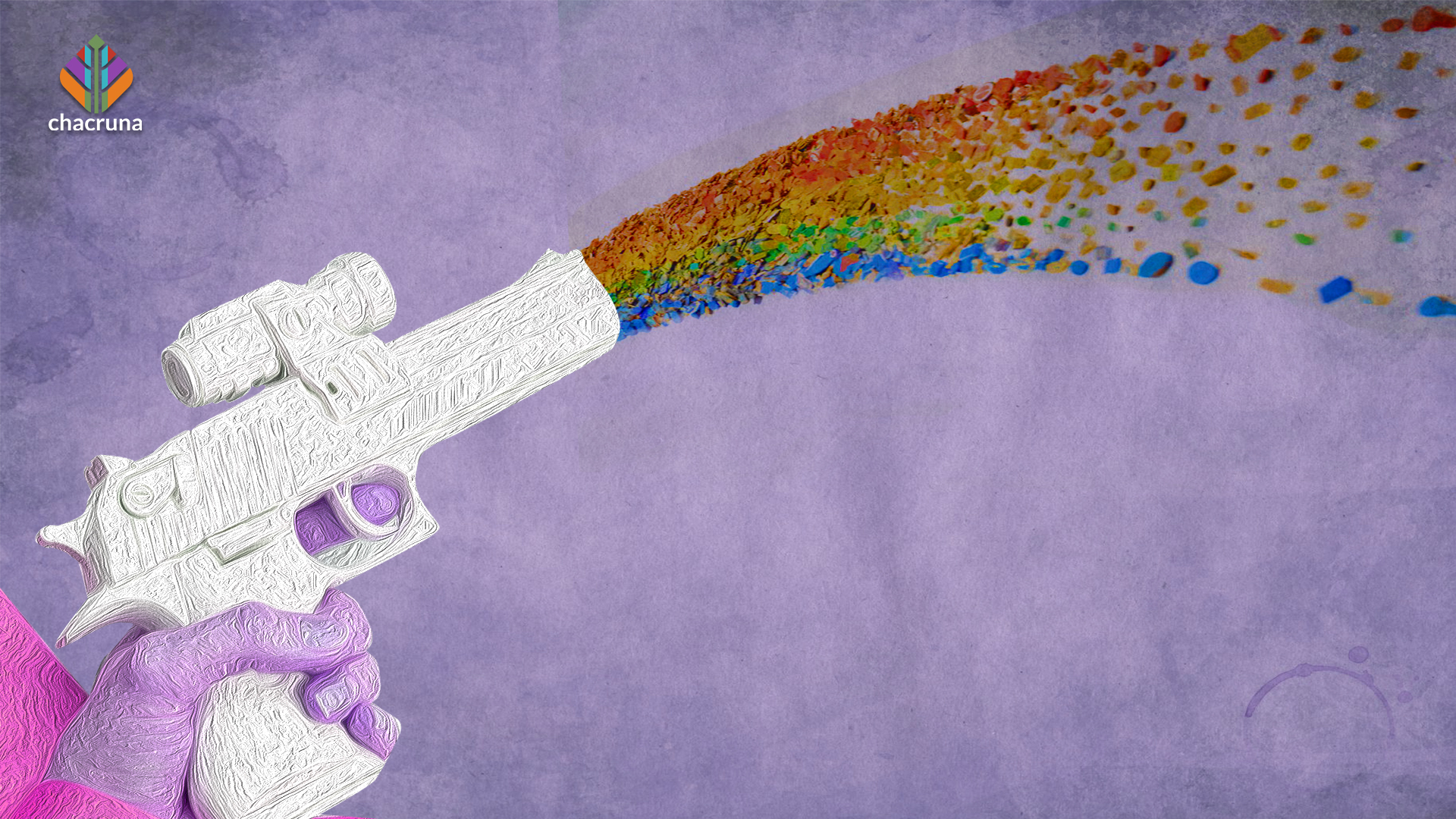Prioritizing healing, activism, and intersectional solidarity in queer psychedelic spaces can empower activists to sustain their essential work while fostering their well-being and resilience in the ongoing struggle for justice and liberation.
This article is a reflection based on The Queering Psychedelics course, which explores how queer, BIPOC, and trans* communities have shaped the psychedelic movement while addressing the harm caused by heteronormative, sexist, and transphobic biases within it. Focusing on dismantling these oppressions, the course highlights LGBTQ+ affirmative practices, trans*, and BPOC perspectives, sex-positivity, and Indigenous insights. The course underscores the need for accessible and diverse psychedelic spaces that can support the healing and liberation of sexual and gender minorities, who often experience exclusion and stigmatization.
Beyond these themes, the course prompted personal reflections on how queer activists—especially BIPOC and trans* individuals—are often at the forefront of social justice movements, including global conflicts. This paper aims to explore the question: How can queer psychedelic spaces, rooted in pleasure activism, provide refuge from oppression, while fostering collective resilience and joy, particularly in the context of global liberation struggles?
Intersectionality in Queer Psychedelic Spaces
Intersectionality, a term coined by legal scholar Kimberlé Crenshaw, offers a critical framework for understanding how multiple forms of marginalization—such as race, gender, and class—intersect and compound the challenges faced by marginalized individuals (Crenshaw, 1989). This framework is essential in psychedelic spaces, as these environments attract individuals from diverse marginalized communities seeking healing, connection, and self-acceptance. For queer individuals, especially those who are BIPOC and trans*, psychedelic experiences could go beyond personal transformation, becoming spaces where they confront and carry the weight of multiple (internalized) oppressions and activist causes.
These psychedelic spaces are uniquely positioned to address and heal the effects of these intersecting oppressions. For example, a trans* person of color might simultaneously contend with gender nonconformity, racial discrimination, and class-based inequality. These layered experiences often amplify their engagement in social justice activism, aligning their struggles for queer liberation with broader movements for racial, gender, and economic justice (Terriquez, 2015). This is particularly evident in psychedelic spaces where the effects of shared trauma—whether through policing, discrimination, or exclusion—are deeply felt and in the best-case scenarios, understood.
Queer psychedelic spaces, by acknowledging these interconnected oppressions, could become vital sanctuaries for both personal and collective transformation, offering not only respite from oppression but also the strength to continue fighting for liberation.
This convergence of oppression fosters a strong sense of responsibility among queer activists, especially in diasporic and transnational contexts, where activism is often relational and community-based (Bhardwaj, 2023). These individuals not only fight for their own liberation but often also carry the burden of leading movements while dealing with deep-seated trauma. Queer psychedelic spaces, by acknowledging these interconnected oppressions, could become vital sanctuaries for both personal and collective transformation, offering not only respite from oppression but also the strength to continue fighting for liberation.
The Role of Psychedelic Spaces in Pleasure Activism
adrienne maree brown’s concept of pleasure activism redefines the pursuit of joy and connection as acts of resistance (brown, 2019). For some marginalized communities, reclaiming pleasure in spaces dominated by systemic oppression can become a radical defiance against the forces that seek to diminish their humanity. In queer psychedelic spaces, pleasure activism can play a pivotal role in healing trauma, building resilience, and fostering community.
Studies have shown that psychedelics like MDMA can reduce trauma and anxiety symptoms (Bahji et al., 2023), particularly in helping marginalized individuals heal from chronic stress and racial trauma (Williams et al., 2020). Psychedelic spaces have the capacity to nurture individual healing and enable collective transformation (Vaid & Walker, 2022), promoting resilience and solidarity among activists who face burnout from social justice work.
In these spaces, pleasure activism emphasizes that joy, self and community care, and connection are essential components of sustainable activism. This reclamation of pleasure stands in direct opposition to systems of oppression that criminalize and/or marginalize queer communities. By fostering and inspiring to maintain intentional behavioral changes, psychedelics can help activists find the emotional fuel they need to continue fighting oppression (Neuhaus & Slavich, 2022). Psychedelic spaces, rooted in joy, can thus become essential tools for resistance and liberation.
Current Events: Queer Activists and Palestine
The recent escalation of violence in Gaza has ignited global queer solidarity with the Palestinian liberation movement. Following Hamas’ attacks on October 7, 2023, and Israel’s retaliatory bombardment, queer and trans activists have joined the forefront of calls for a ceasefire and justice for Palestinians. Events like Queers for Palestine have amplified queer Palestinian voices (for example organizations like No Pride in Genocide), emphasizing that the focus must be on ending the Israeli occupation, rather than deflecting attention towards homophobia within Palestinian society (which has been part of Israel’s use of pinkwashing). Queer solidarity with Palestine is not new but deeply rooted in the intersection of queer liberation/activism and anti-occupation movements.
Queer activists also challenge Israel’s use of “pinkwashing”—a tactic that highlights Israel’s “progressive” stance on LGBTQ+ rights to obscure its repression of Palestinians (Ritchie, 2015). By portraying itself as an LGBTQ+-friendly state, Israel distracts from (and attempts to justify) its treatment of Palestinians, using LGBTQ+ rights as a cover for ongoing occupation and militarism (Nusair, 2022). This critique underscores the inseparable nature of queer and Palestinian liberation movements.
The psychological toll of this activism is significant. Many queer activists experience re-traumatization due to parallels between their current involvement in pro-Palestinian activism and past experiences with police brutality at Pride events or institutional violence. These echoes of trauma create a cyclical pattern, where the fight for justice often reopens old wounds, complicating healing processes (Preser & Misgav, 2015).
Despite facing backlash and repression, queer activists remain in solidarity with movements advocating for Palestinian freedom. As they mobilize, their activism reinforces the interconnectedness of liberation struggles across oppressed communities. By standing with Palestinians, queer activists resist queerphobia and its connection to broader structures of oppression that seek to dehumanize marginalized groups.

Discover the Indigenous Reciprocity Initiative of the Americas
Healing and Resistance: A Manifesto for Safe(r) Queer Psychedelic Spaces
In creating safe(r) and healing psychedelic spaces for queer activists, it’s essential to foster environments that support both individual and collective resilience. These spaces must be inclusive, trauma-informed, and rooted in intersectional solidarity. Drawing from brown’s Pleasure Activism and the interconnectedness of queer liberation movements, this manifesto outlines key components for building such sanctuaries.
Safety from Violence: Central to these spaces is the protection from police violence, state repression, and surveillance—parallels to the oppression faced by activists in movements like Palestinian liberation. Clear protocols must be established to safeguard attendees from institutional discrimination. Measures such as anonymous participation, inclusive language, and active bystander training can empower individuals to support each other during moments of crisis, reflecting the care and solidarity embedded in queer activism (Bhardwaj, 2023).
Emphasis on Consent: Consent extends beyond physical interactions, covering emotional and psychological boundaries. Educating participants on the nuances of consent creates a culture of respect and empowerment, where people can freely express their needs and limits. This principle reflects the collective responsibility found in both queer and activist spaces, ensuring that everyone’s voice is heard and valued.
Care for Re-Traumatized Individuals: Given the prevalence of trauma among marginalized groups—particularly in queer and BIPOC communities—these spaces must prioritize trauma-informed practices. Trained facilitators, grounding techniques, and safe word systems can provide the support necessary for individuals navigating overwhelming emotions. This care directly addresses the re-traumatization queer activists often experience, particularly those involved in anti-occupation movements like Palestine solidarity (Ritchie, 2015).
Intersectional Solidarity: These spaces must embrace intersectional solidarity by actively addressing race, gender, class, and ability, recognizing the interconnectedness of all forms of oppression. Creating an inclusive environment where all voices are heard and harm is addressed ensures that each individual’s struggles are respected, fostering mutual support and collective healing.
Centers of Pleasure Activism: These spaces should serve as centers for pleasure activism, where participants reclaim joy and healing in defiance of oppressive systems. Workshops on pleasure, connection, and creativity can empower individuals to explore the therapeutic benefits of psychedelics, building resilience within activist communities. Psychedelics, known for their healing potential in trauma reduction, can play a transformative role here (Williams et al., 2020).
Practical Steps Forward: To actualize this vision, communities can organize communal psychedelic retreats focused on queer healing and activism. Collaborating with organizations like MAPS and Chacruna can provide valuable resources for trauma-informed practices. Hosting safe gatherings, sharing resources, and establishing support networks will help queer individuals engage with psychedelics responsibly and safely.
Conclusion
Queer activists bear the weight of intersectional burdens, confronting compounded forms of oppression based on race, gender, and sexuality. This ongoing struggle against systemic injustice takes a significant toll on their mental and emotional health, underscoring the urgent need for spaces that foster healing and resilience. Psychedelic spaces, rooted in the principles of pleasure activism, offer transformative opportunities for both individual and collective healing, enabling activists to reconnect with joy and community.
Psychedelic spaces, rooted in the principles of pleasure activism, offer transformative opportunities for both individual and collective healing, enabling activists to reconnect with joy and community.
As we witness global conflicts and the re-traumatization of queer activists—many of whom are deeply involved in movements like Palestinian solidarity—it becomes increasingly critical to create safe, inclusive environments for healing. These spaces must prioritize consent, trauma-informed practices, and intersectional solidarity to allow individuals to process their traumas while finding strength in collective care.
I urge communities, both locally and globally, to actively engage in creating these sanctuaries. By prioritizing healing, activism, and intersectional solidarity within queer psychedelic spaces, we can empower activists to continue their vital work while nurturing their well-being and resilience in the fight for justice and liberation.
Art by Mariom Luna.

Shop our Collection of Psychedelic T-Shirts
Resources
Bahji, A., Lunsky, I., Gutiérrez, G., & Vazquez, G. (2023). Efficacy and Safety of Four Psychedelic-Assisted Therapies for Adults with Symptoms of Depression, Anxiety, and Posttraumatic Stress Disorder: A Systematic Review and Meta-Analysis.. Journal of psychoactive drugs, 1-16 . https://doi.org/10.1080/02791072.2023.2278586.
Bhardwaj, M. (2023). “That’s what we think of as activism”: Solidarity through care in queer Desi diaspora. Journal of Lesbian Studies.
brown, a. m. (2019). Pleasure activism. AK Press.
Crenshaw, K. (1989). Demarginalizing the intersection of race and sex: A black feminist critique of antidiscrimination doctrine, feminist theory, and antiracist politics. University of Chicago Legal Forum, 1989(1), 139-167.
Neuhaus, E., & Slavich, G. (2022). Behavioral Psychedelics: Integrating Mind and Behavior to Improve Health and Resilience. Frontiers in Psychiatry.
Nusair, I. (2022). Queer Palestine and the Empire of Critique. Journal of Palestine Studies.
Preser, R., & Misgav, C. (2015). Israel/Palestine and the Queer International by Sarah Schulman (review). Journal of Middle East Women’s Studies.
Ritchie, J. (2015). Pinkwashing, Homonationalism, and Israel–Palestine: The Conceits of Queer Theory and the Politics of the Ordinary. Antipode.
Shaheed, J., Cooper, S., McBride, M., & Burnett, M. (2022). Intersectional Activism Among Black Lesbian, Gay, Bisexual, Transgender, and Queer Young Adults. Journal of Black Psychology.
Sligo, J., Besley, T., Ker, A., & Nairn, K. (2022). Creating a culture of care to support rainbow activists’ well-being. Journal of LGBT Youth.
Terriquez, V. (2015). Intersectional Mobilization and Queer Youth Leadership. Social Problems.
Vaid, G., & Walker, B. (2022). Psychedelic Psychotherapy: Building Wholeness Through Connection. Global Advances in Health and Medicine, 11. https://doi.org/10.1177/2164957X221081113.
Williams, M., Davis, A., Xin, Y., Sepeda, N., Grigas, P., Sinnott, S., & Haeny, A. (2020). People of color in North America report improvements in racial trauma and mental health symptoms following psychedelic experiences. Drugs.
Take a minute to browse our stock:
Did you enjoy reading this article?
Please support Chacruna's work by donating to us. We are an independent organization and we offer free education and advocacy for psychedelic plant medicines. We are a team of dedicated volunteers!
Can you help Chacruna advance cultural understanding around these substances?















